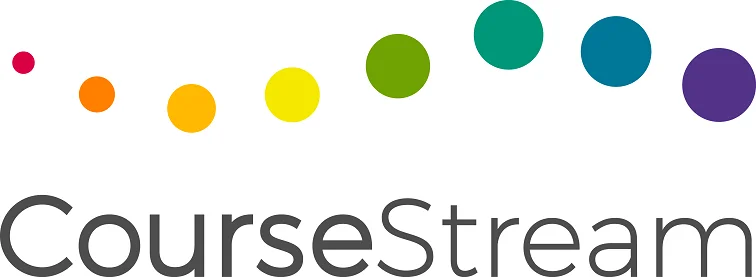Why Study this Human Resource Management Course?
Want to learn how to properly manage personnel? Interested in learning how to boost your employees’ motivation? Then, this online Human Resource Management course will help you do that and more!
This online human resource management course will teach you that and more. Such as how to understand the human behavior, how to have a effective communication and give clear instructions, the different ways to train your staffs, how to deal with various types of grieves and complaints, how to discipline someone positively, and much more.
You want to be an effective leader and get the most out of your people. You want to be an employer of choice and implement strategies that show your employees they are valued. To achieve this, you need to consider how to improve your work environment, people and processes.
We will inform you on several strategies that you can use to perfect your recruitment processes and improve employee management practices.
You will learn how behavioral attributes of individuals are formed. You will improve your communication techniques so you can effectively manage teams and lead them to success. You will discover how workplace conditions and the management of projects can impact on performance objectives. You will learn about monitoring and reporting tools used to track productivity and personnel performance. You will be given clarity around streamlining recruitment, induction and staff training practices. You will uncover how the principles of positive discipline and working in teams can lead to improved employee performance.
To begin your journey towards effective team management all you need to do is… ENROL. Course Stream will provide you with the information you need to succeed and support your learning experience.
Course Aims
- Explain how perception, learning and prior experience influence human behaviour.
- Identify and practice communication skills that will improve your ability to effectively receive and transmit messages in the workplace.
- Explain factors that contribute to overall workplace conditions and can affect workplace culture.
- Explain basic supervising practices for controlling business or department operations.
- Identify essential processes in the recruitment and induction of employees.
- Describe the key elements of planning and conducting effective staff training.
- Describe how team processes can be used to improve performance and productivity.
- Identify methods to establish and maintain discipline through positive means, such as reinforcement and increasing motivation.
- Describe strategies for reducing dissatisfaction and handling dissatisfaction when it arises.
- Explain the importance of monitoring workplace processes and performance, and how to report your observations
What will you learn?
- Individual and group behaviour
- Perception
- Gestalt theory of perception
- Influences on perception: behaviour, appearance, expectations, primary effect, attribution, schemas
- Perception and reality
- Selective attention
- Central traits
- Attribution
- Kelley’s theory of attribution
- Changing perceptions
- Defence mechanisms
- Psychologically healthy individuals
- Influences on human behaviour
- Socialisation
- Family influence
- Influence of school
- Influence of peers
- Influence of society
- Communication defined
- Variables affecting communication: context, nature and quality of the transmitted message and the received message
- Effective communication
- Listening effectively
- Giving clear instructions
- Unions
- Duty of care
- Workplace safety
- Costs of illness and injury
- Lifting and manual handling
- Protective equipment
- Workplace bullying and violence
- Workplace design; physical and psychological factors
- Colour
- Office landscaping
- Supervising staff: listening, informing, leading
- Managing a project
- Applying standards
- Monitoring performance
- Regulating progress
- Giving directives and introducing change
- Dealing with contingencies
- Developing contingency plans
- Problem solving methodology
- Stock control
- Quality control
- Production control
- Labour utilisation control
- Financial control
- Advertising a position
- Interviewing
- Interview guidelines
- Interview questions
- Types of questions
- Responsibilities of a trainer
- Factors affecting learning: Attention, intelligence, self esteem. etc
- How we learn
- Memory
- Assessing training needs
- Sources of information for a needs assessment
- Communication skills for trainers
- Body language
- Reasons that people do not learn -communication barriers
- Developing conversation
- Effective questioning
- Motivating learners
- Principles of learning
- Adult learners
- Conformity -Heiders Balance Theory
- Different styles of handling conflict
- Delegation
- Delegation situations: High Experience/Low Motivation; High Experience/High Motivation etc
- Conflict handling tequniques
- Dealing with anger (in yourself and in others)
- Negotiation
- Joint problem solving approach
- Mediation
- Negotiation problems
- Static and dynamic principle
- Giving praise
- Enforcing rules
- The disciplinary interview
- Changing behaviour -classic and operant conditioning
- Reinforcement
- Punishment
- Detecting a problem
- Guidelines for dealing with grievances
- Reducing grievances
- Applying the formal problem solving technique
- Monitoring performance
- Observation
- Regular review
- Scheduled evaluations
- Report writing
- Work study
- Techniques of work study
- Work measurement
Enrol Now
- Experienced Tutor support
- Certificate sent to you
- Online study (Printed notes available)
- Self paced - no set timetable
- 12 months to complete course
From: $35.00 / week for 19 weeks
Get a Free Info Pack!











